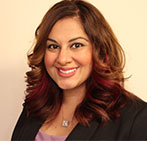Summary
In this FREE pilot episode, Salme Lavigne, scientific editor of the Canadian Journal of Dental
Hygiene
(CJDH),
interviews Seema Virji, lead author of a recently published article on orofacial myofunctional therapy as a
treatment
option for a young client with malocclusions created by oral habits. Learn about Seema’s journey to becoming
a
certified
orofacial myologist (COM®), her experience with the peer-review and publication process, and how
myofunctional
therapy
aids in improving dental malocclusions by eliminating oral habits.
Read Seema’s case study and
learn
more about the integral role that COM®s play in client care. Also, browse past issues of CJDH for complementary research on similar
topics.
Individual journal articles can be easily viewed, downloaded, and printed.
For CDHA members to receive a certificate of completion for this learning activity, click the
Access
button and
complete the curriculum. After responding to a feedback survey, your certificate will be available in your
online
CDHA
profile. Your feedback is important as it will help us assess the value of this learning activity and
determine the
next
steps for this pilot project.
Learning Outcomes
Following the learning activity, participants will be able to:
- Identify areas of their dental hygiene practice requiring improvement
- Use knowledge sources to inform dental hygiene practice and enhance service provision
- Reflect on challenges of applying new scientific research to practice
Format for Learning
The recorded interview is available in English with French closed captioning. The research article is
available in
English and French.
The interview is approximately 15 minutes in length; access to the accompanying research article is
provided
along with
a set of self-reflection questions. The learning is self-directed and the article can be downloaded and
printed. The
self-reflection questions must be completed prior to receiving a certificate of completion. It is
expected
that viewing
the recording, reading the article, and answering the questions will take you 2 hours.
A certificate of completion will be provided. After watching the video, reading the article, answering
the
questions,
and responding to a feedback survey, you can access a certificate of completion from your online CDHA
profile.
Speakers

Seema Virji, BSc, RDH, COM®
Seema Virji graduated from the University of Alberta with a Bachelor of Science, specializing in
dental
hygiene. She has
her local anesthetic certification from the University of Alberta and her dental hygiene
prescriber rights.
Seema currently owns and operates an independent orofacial myofunctional therapy clinic whose
sole purpose is
to treat
myofunctional disorders. It was one of Edmonton's and Canada's first myofunctional therapy
clinics owned and
operated by
a dental hygienist. Seema is a certified orofacial myologist with the International Association
of Orofacial
Myology
(IAOM). She was the fifth dental hygienist to certify in Canada. Seema is currently serving as
vice
president of the
IAOM and is the co-chair of the IAOM’s mentoring committee.

Salme Lavigne, PhD, RDH
Salme Lavigne was appointed scientific editor of the Canadian Journal of Dental Hygiene,
effective
December 1, 2015. She
holds a diploma in dental hygiene from the University of Toronto, a bachelor’s degree in
biomedical
anthropology from
Lakehead University, a master’s degree in dental hygiene education from the University of
Missouri-Kansas
City, and a
doctorate in community health sciences from the University of Manitoba. Salme was the founding
director of
the dental
hygiene program at Confederation College, Thunder Bay, and served as director of the School of
Dental
Hygiene,
University of Manitoba, for 13 years where she developed and initiated the first BScDH program
at that
institution. An
internationally recognized researcher and educator, Salme has received Alumni of Distinction
awards from the
University
of Toronto and the UMKC School of Dentistry, and a Life Membership Award from the Canadian
Dental Hygienists
Association.